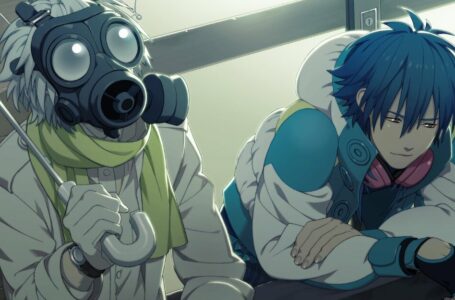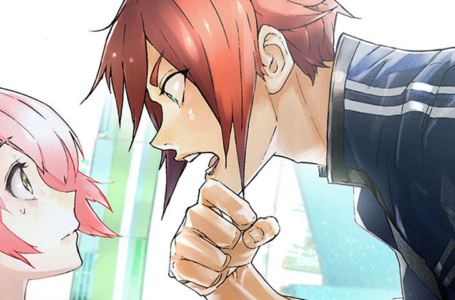It’s time we found a better term than “all-ages”
There’s been some rumblings of discontent on the Internet recently. I know, I know, there’s always rumblings of discontent about some shit or other on the Internet of late, but this time around there’s actually a worthwhile discussion to be had. And it concerns the use of the term “all-ages” to describe visual novels with no explicit sexual content — whether those visual novels are edited versions of former 18+ titles, or works written from the outset to not include erotic scenes.
The reason this discussion has cropped up is because the BL-centric arm of JAST USA, JAST Blue, has been discussing its upcoming localised release of Nitro+Chiral classic Slow Damage on Twitter recently. As part of those discussions, JAST Blue happened to mention that in order to get the game on Steam, they have put together an “all-ages” version which lacks the explicit erotic scenes from the original — though like most JAST titles, the game can be patched to return it to its original 18+ format.
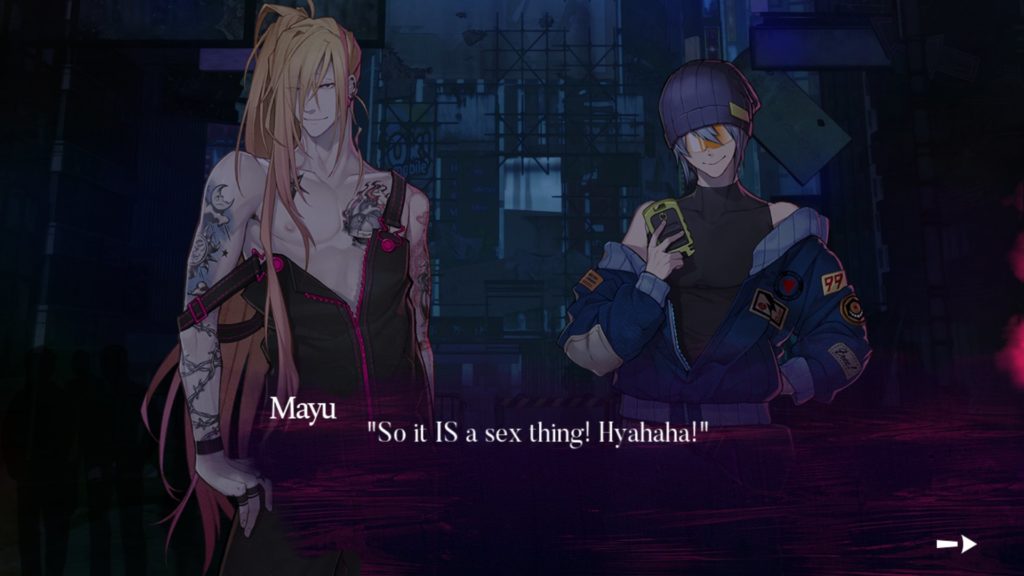
The discontent this time around, interestingly, was not to do with “censorship” for once (thank fuck) — most visual novel fans who actively engage with the medium are well familiar with Steam’s notoriously inconsistent content policies, so an edited release for the platform should be no surprise at this point. Rather, it was an objection to JAST Blue’s use of the term “all-ages” to describe the edited Steam release of Slow Damage.
Even without erotic scenes, Slow Damage — like most of Nitro+Chiral’s work, and indeed like most of Nitroplus’ stuff in general — is heavy going. It features characters with significant psychological issues, alcoholism, violence, gore and plenty of other things besides. As such, it’s not something you’d want to let children play unsupervised, particularly if they’re not in a suitable state to deal with stories concerning explicit depictions and discussions of trauma. In other words, the fact that the sexual content has been excised most certainly does not make Slow Damage in any way suitable for readers of all ages!
Trouble is, “all-ages” has, over the years, become the established term for visual novels without erotic scenes — regardless of their actual content and subject matter. Sekai Project CEO Christopher Ling blames this on Japan’s use of 全年齢 — literally, “all-ages” — to describe works of this nature, and suggests that it’s probably time we found a better term to use here in the west to prevent any sort of confusion and, more significantly, to ensure that material minors likely aren’t mentally equipped to deal with doesn’t fall into their hands prematurely.
Slow Damage is far from the only example of an “all-ages” visual novel emphatically being intended for adult readers, despite no “adult” (i.e. sexual) content. In fact, there are probably too many examples out there to go through systematically — so I’ll just give a couple from my own personal experience.
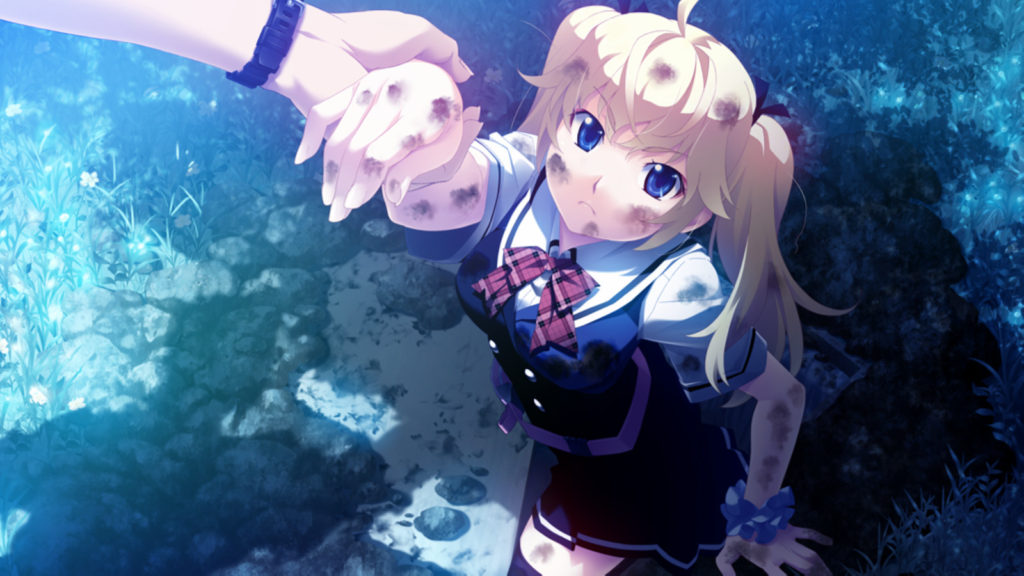
First off, there’s the Grisaia series. Now, these are available in their original 18+ format from Sekai Project’s adult-centric imprint Denpasoft, but they’re also available in other places in “all-ages” format. There’s a strong argument to be made that the sexual scenes are pretty critical to the development of the various characters in Grisaia, but that’s a discussion for another day; even without those sex scenes, Grisaia still deals with some heavy subject matter — mostly of the psychological trauma variety, with some violence, terminal illness and death along the way just for good measure.
Then there’s the Nurse Love Obsession series from Kogado Studio. On the surface, these are colourful, happy yuri visual novels that feature cute nurses being gay with one another, but again, there’s a distinctly darker undercurrent that varies quite considerably between the two main installments.
In first game Nurse Love Syndrome, for example, the game unashamedly confronts some stark realities that only really adults will be able to relate to properly. These range from the relatively mundane — starting a new job and feeling woefully unequipped to deal with pretty much everything daily life throws at you — up to more serious matters, such as the death of people you feel close to, depression and anxiety and suicide attempts.
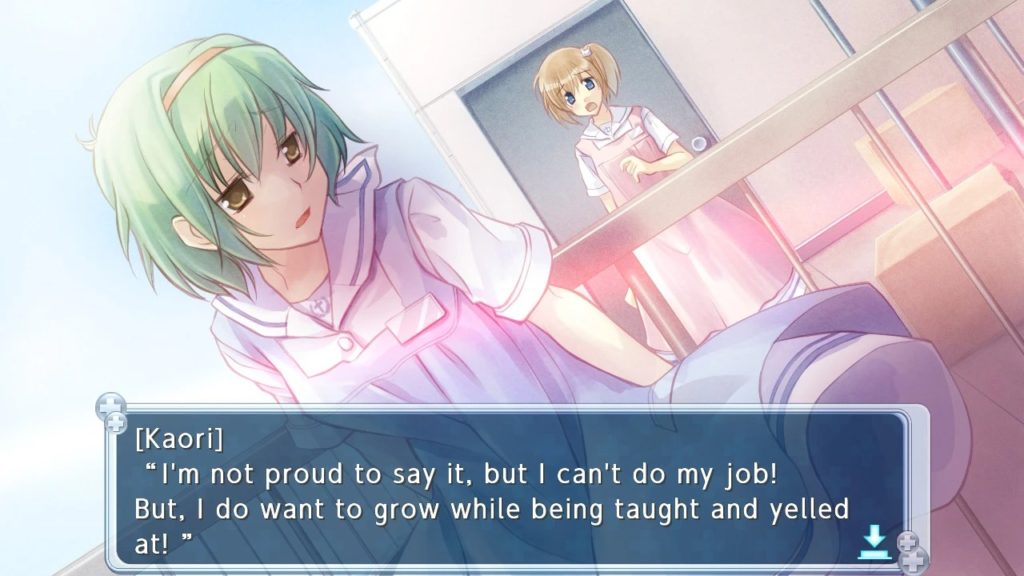
Second game Nurse Love Addiction takes a bit of a different tack, and discussing it in too much detail would constitute massive spoilers — a key part of that game’s effectiveness is the element of surprise. Suffice to say that it deals with equally weighty subject matter including violence and criminal activity as well as abusive relationships and plenty of other things besides.
Now, there’s perhaps an argument to be made that we should be equipping young people with the ability to deal with these very real issues, perhaps from a fairly early age. Fiction can be a great means of doing that, because as serious as some stories can get, well-adjusted people know that ultimately it’s just a story — a fantasy that is unfolding on the screen in front of you, on the page before you or in your own mind. You can walk away from it at any time if you’re feeling uncomfortable — and reflecting on what you’ve just experienced can help you contemplate how you might deal with such situations in reality.
The important thing to bear in mind, though, is the element of choice. People need to be able to make an informed decision about what sort of material they’re getting into. And while one might argue that content descriptors and warnings can act as spoilers — ponder whether, on its original release, the heel turn in Doki Doki Literature Club might have been more effective without its opening content warning, for example — ultimately it’s best to have a decent idea as to what you’re about to engage with before you make the decision to dive in.
“All-ages” is a woefully inadequate term to cover that. “All-ages”, to those outside the visual novel sphere, conjures up images of happy colourful Disney movies — not mentally exhausting thrillers full of violent scenes and psychological trauma, or drama of the kind that only grown-ups will be able to relate to properly.
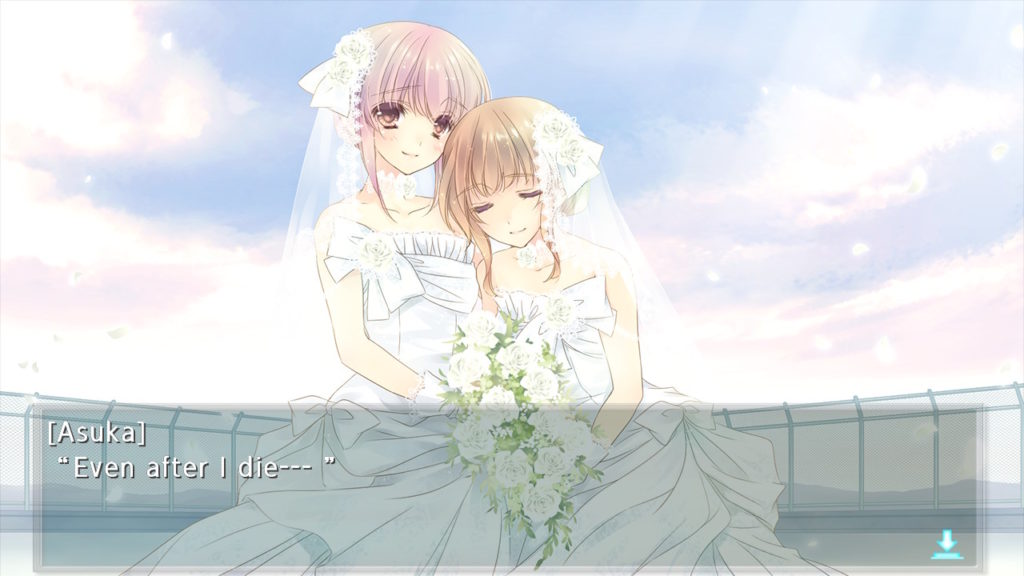
So what’s the solution? There obviously still needs to be a distinction between the 18+ release of a game, where one exists, and what we have referred to up until now as the “all-ages” version. “Steam version” doesn’t really cut it, as “all-ages” visual novels are released on platforms other than Steam, and making a distinction between an “edited version” and a “normal version” isn’t desirable either, because 1) sometimes the “all-ages” version is the only version and 2) it implies that the version without erotic content is somehow “abnormal” and undesirable — believe it or not, there genuinely are some people out there who prefer to play versions of formerly 18+ titles that lack erotic content.
Ideally what we’d have is a rating and content descriptor system that people actually pay attention to, but I think we can all agree that PEGI, ESRB and CERO all do a woefully poor job at actually informing people about the things you’ll actually experience in a visual novel or video game.
Outright “trigger warnings” are probably undesirable for several reasons also — firstly, the term carries a certain amount of baggage among parts of the gaming community that developers can probably do without having to deal with; secondly, someone looking for information on the content of a game isn’t necessarily worried that they will be “triggered” by it; thirdly, they can come across as needlessly apologetic and lacking faith in the material that has been included in the game.
Perhaps some sort of commonly agreed voluntary system would be of benefit to everyone, with developers and publishers agreeing a means of presenting not the legal restrictions on who is able to purchase and play the game (i.e. the PEGI/ESRB/CERO ratings) but the recommendation for who it is suitable for — along with a brief summary of why.
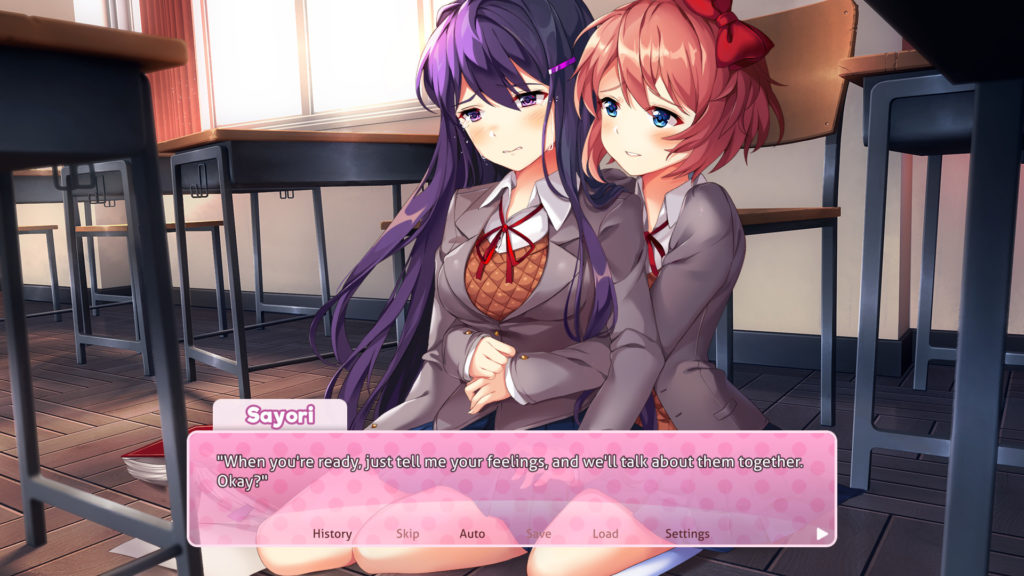
With a system like this, developers and publishers could, for example, indicate that even though a title is not “18+” in the sense that it includes erotic content, they could still show that the narrative is only recommended for those over the age of 18 due to other reasons such as violence or trauma. Perhaps there could be a similar distinction to the BBFC’s 18 and R18 ratings, with the former indicating that the subject matter on the whole is intended for adults, and the latter indicating that there is explicit sex.
The trouble with this system is, of course, getting everyone to agree on its terms and definitions — and with so many developers, publishers and localisers working on visual novels today, it would doubtless be a challenge to get everyone on the same page. Plus, in the case of localised titles, doubtless the original Japanese developers would have something to say about the age recommendations and content descriptors also.
In other words, this is not a problem that we’re going to solve overnight — but the discussions surrounding Slow Damage indicate that it’s something probably worth thinking about sooner rather than later. The visual novel scene in the west has grown explosively over the course of the last couple of decades, and thus it’s as good a time as any to ensure that those getting into the medium for the first time can remain informed and confident about the works they’re experiencing without getting scared away by accidentally stumbling across something they’re not prepared for!
Because this probably needs to be said, judging by past experience: this is not an advocation for restricting sexually explicit material in any way, nor is it intended to discourage visual novel developers from tackling weighty, challenging themes. It’s simply about the ability for people — especially those new to the medium — to understand what they can expect from various releases, and whether or not it might be appropriate to share them with younger audiences.
What do you think? Share some thoughts down in the comments, via our usual social channels — or pen us some more detailed musings for the Rice Digital Friday Letters Page!
Join The Discussion
Rice Digital Discord
Rice Digital Twitter
Rice Digital Facebook
Or write us a letter for the Rice Digital Friday Letters Page by clicking here!
Disclosure: Some links in this article may be affiliate links, which means we may earn a small commission if you make a purchase after clicking on them. This is at no additional cost to you and helps support Rice Digital!
- Letter from the Editor: passing the torch - June 30, 2023
- Super Woden GP 2 is looking promising - June 30, 2023
- Inti Creates is making a 32 bit-style Love Live action platformer - June 26, 2023





